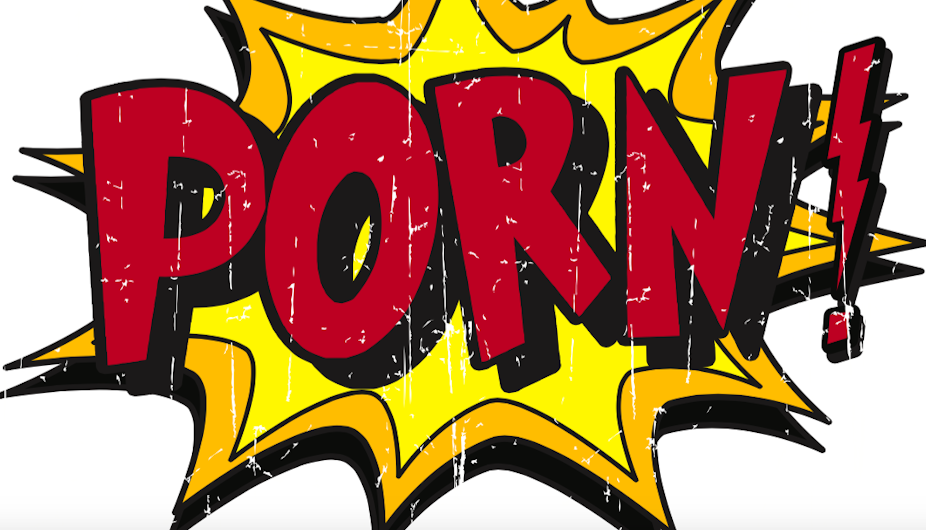The year has begun with Pornhub’s, now traditional, “Year in Review”, which details trends in the popular pornography site’s traffic. This includes a breakdown of what users have been viewing over the past 12 months – and, as usual, makes for some interesting reading.
The first clear message is that pornography is popular. Very popular. An astonishing 28.5 billion visitors visited the site in 2017, the equivalent of 81m people per day.
But what were they looking at? Well, aside from the fairly pedestrian search terms, such as “lesbian” and “massage”, that you’d expect, the review once again raises the question of how close users are skating to the limits of legality.
In 2016, I questioned the popularity of searches for “teen” porn. Viewing pornography featuring “teens” over the age of consent is legal – but in most jurisdictions, including the US and UK, viewing indecent images of people under the age of 18 is a serious criminal offence.
Despite this, “teen” remains the seventh most searched for term by Pornhub users globally. In the UK, however, the term has now vanished from the top ten most viewed categories, with users perhaps erring on the side of caution as the categories of “mature” and “Milf” rise in popularity. In the US, “teen” dropped from first place in 2016 to ninth in 2017, while in Canada it went from the fourth most searched for category in 2016 to the tenth last year.
A growing market
Overall, however, demand for online pornography has increased in many countries, including the UK, which is now second (after the US and before India in third) on the top 20 list of countries using Pornhub.
There is a good reason for this. In the UK, for example, pornography produced and distributed for the video-on-demand (VoD) market is now regulated by the British Board of Film Classification. Content that would not receive an R18 certificate if released on DVD is now also prohibited for sale as VoD and this includes acts such as spanking, fisting and female ejaculation.
This has limited the availability of some pornography and means people are now even more likely to turn to free internet hosting sites such as Pornhub to view footage of more unconventional sexual acts.
It seems porn users are also increasingly taking their viewing habits public. The well publicised report of a man watching porn on his mobile phone while travelling on a bus prompted people to come forward with their own experiences of being exposed to pornography in public. The data supports this trend. The Pornhub figures reveal that more of us are now using portable devices to view pornography, with 64% of the site’s UK traffic coming from smartphones.
It seems users have got more creative with their top search terms, too. “Step-sister” and “step-mom” were among the UK’s top five searches in 2017, while “teacher” and “babysitter” were also popular searches in 2016. It’s no great surprise that the suggestion of illicit sex attracts significant amounts of traffic, something perhaps best illustrated this year by a huge surge of interest in “British amateur dogging”.

Pornhub’s 2017 review also points to a rise in the popularity of “squirt” (female ejaculation) porn – a new entry as the tenth most popular UK search term. This may be linked to the new restrictions imposed on VoD services, or it may be prurient interest in a practice that has received increased mainstream attention.
Unsurprisingly, given the cultural shift the world has undergone towards the normalisation of S&M since the 50 Shades of Grey books and films, searches for bondage porn have increased in the UK by 28%. But UK users need to be aware that while viewing pornography involving bondage is legal, the law is strict once this crosses the line and involves bodily injury.
What is extreme?
In the UK, extreme pornography is defined as pornographic images which are “grossly offensive, disgusting, or otherwise of an obscene character”, and portray in an “explicit and realistic” an act which threatens a person’s life, or results in or is likely to result in serious injury. In England, Wales and Northern Ireland this must be injury to a person’s anus, breast or genitals. In Scotland there is no such restriction.
Extreme images also include those which portray sexual interference with a human corpse, or an act of intercourse or oral sex with an animal. The possession of “rape porn” – which is widely defined as the non-consensual penetration of a person’s vagina, anus or mouth by another with a penis, or anything else, is also illegal.
It is an offence to knowingly possess these materials, and this includes downloading them. A conviction could result in up to three years’ imprisonment. Whether serious injury is risked or caused is a matter of fact – there is no definition in law. This poses a danger for those viewing more extreme images of sex where acts are presented as non-consensual or particularly dangerous.
The law also varies from country to country and, in the US, from state to state.
Pornhub prohibits the posting of content featuring incest, torture and rape pornography (among other acts). But like many video sharing sites, it is only a hosting site and does not commit to actively policing all content uploaded. This poses something of a danger for users who may encounter illegal content – particularly by way of the “pop-ups” that redirect visitors to more extreme forms of pornography.
While access to Pornhub and most other pornographic sites is currently uncontrolled it will become more difficult to view the content when age-verification comes into force in the UK – more countries may follow – later this year.
Even when this takes effect, however, you can’t assume the porn you view online is legal, even when it’s featured on fairly reputable websites. If you are using these sites, it’s best to familiarise yourself with the limits of the law. It’s one area where it’s just a little too easy to become an accidental criminal.

